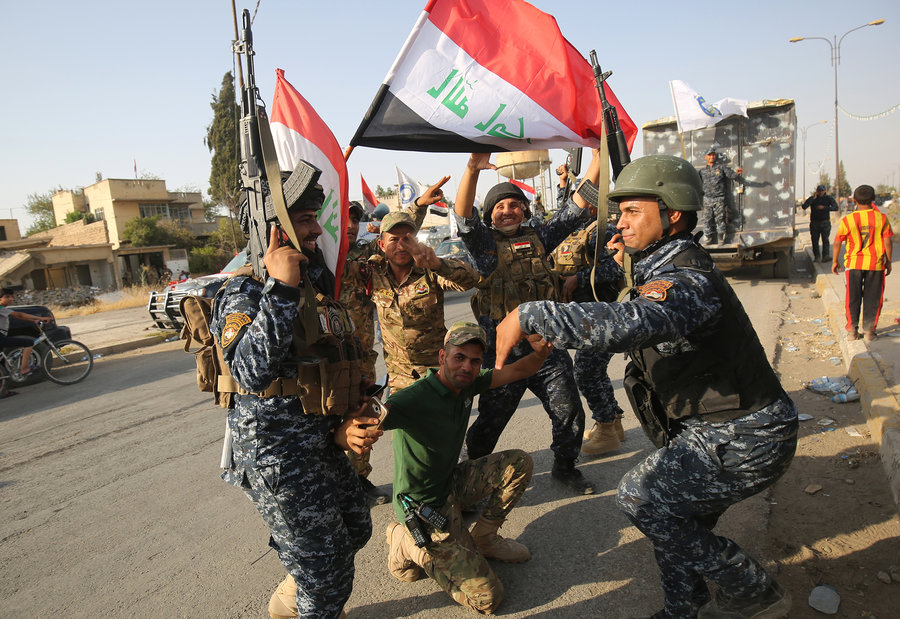Osama Bin Laden’s son Hamza is being readied for a promotion to the senior ranks of al-Qaeda. That is according to recent US intelligence reports which have elevated Hamza Bin Laden to the status of “Specially Designated Global Terrorist”. Along with Ayman al-Zawahiri, Osama’s successor to the leadership, Hamza is now the most wanted figure within the extremist group.
At a glance, this promotion is puzzling. Al-Qaeda has always appointed individuals to higher positions based on age and experience. Zawahiri had been an associate of Bin Laden since 1986 and had been the brains behind the organisation for serval years before Osama was killed by a Navy Seal squad in 2011. His promotion to the top job surprised no one and it had been widely predicted since 2009. Hamza, in contrast, is only 28 (perhaps 29) and his operational career at al-Qaeda only began in 2005 when he was involved in operations against Pakistani troops in Waziristan province.
Scratch beneath the surface however and it is easy to see how Hamza’s promotion is a clever and opportune move by al-Qaeda’s inner sanctum. In 2014, Islamic State (IS) assumed the de facto leadership of the global jihadist movement after sweeping victories in Syria and Iraq saw it proclaim an actual, territorial caliphate. Since then, al-Qaeda has attempted to regain its hegemony over jihad in part by adopting territorial acquisition strategies of its own in Syria and Yemen.
But IS’s fortunes have now turned. In Iraq they are all but gone, evicted from their stronghold Mosul in July of this year. In Syria, they are encircled as the American backed Syrian Democratic Forces and Russian backed government forces are converging on the town of al-Bukamal, IS’s last stronghold in the country, with recent reports suggesting that the town is all but liberated. The caliphate is shrinking and so is its gravitational pull on Jihadis worldwide. Al-Qaeda knows that the moment is ripe to retake its crown and Hamza may be set to play a crucial role in this effort.

(Ahmad Al-Rubaye/AFP/Getty Images)
Hamza Bin Laden no doubt has some leadership skills. He has been involved in al-Qaeda’s propaganda network for the past few years releasing several audio messages including a 21-minute tirade in 2016 entitled “We Are All Osama”. His real strength however is his heritage. Among extreme jihadist circles, there is no name that possesses the same inspirational potential as “Bin Laden”. As a carrier of this name and son to the man himself, Hamza’s promotion is likely part of an effort to re-emphasise the legitimacy of al-Qaeda’s claim to be a spiritual and practical guide to Muslims all over the world. After 3 years in relative obscurity, one could see the promotion as part of an al-Qaeda relaunch and a statement of defiance against the West which has just bombed IS virtually out of existence.
As well as exploiting IS’s diminishing presence in the Middle East, al-Qaeda knows that its soldiers too could do with a moral boost. In Syria, Hayat Tahrir al-Sham, the local branch of al-Qaeda, is taking the brunt of a Turkish led military operation aimed at establishing Turkish control over Idlib province. In Yemen too al-Qaeda is being hit by an unprecedented number of American airstrikes (over 100 already this year smashing a record of 42 in 2012). Hamza Bin Laden’s elevation may help to inspire the al-Qaeda rank and file and confirm their confidence in the leadership in the face of these new challenges.
All of this confirms two things. Firstly, al-Qaeda is still the obscure but distinct and active association that it has been seen its inception in 1988. The death of Osama did not decapitate al-Qaeda as many hoped it would. Secondly, it shows that the ideology of Islamic extremism is impossible to eradicate through military means. If al-Qaeda exploits the demise of IS, as this strategy shift promises to do, then it shows how the violent jihadist ideology is vectored through different groups in succession with the demise of a physical group leaving the ideology free for another group to brand as its own. Therefore, Hamza Bin Laden’s promotion not only threatens to continue the West’s struggle against Islamic extremism but it should also signal to Western policymakers that a new, long-term strategy is needed.


